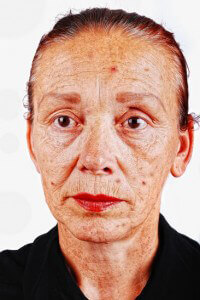Smoking is a well-known risk factor for numerous health issues, but its impact on cosmetic surgery is often overlooked. For those considering cosmetic procedures, understanding the effect of smoking on both the recovery process and the final results is crucial. In this article, we will explore how smoking affects cosmetic surgery and why quitting smoking is essential for achieving the best aesthetic outcomes.

The Impact of Smoking on Cosmetic Surgery
Smoking negatively influences cosmetic surgery outcomes in several significant ways. Here’s an in-depth look at the impact of smoking on aesthetic procedures:
- Delayed Wound Healing
One of the primary concerns with smoking and cosmetic surgery is delayed wound healing. Smoking increases the levels of carbon monoxide in the blood, which reduces oxygen delivery to tissues. This decreased oxygen supply impairs the body’s ability to heal wounds efficiently. For cosmetic procedures such as facelift surgery, breast augmentation, or liposuction, proper blood flow is essential for rapid recovery. Smokers often experience prolonged recovery times and increased risk of complications due to compromised blood circulation.
- Increased Scarring
Smoking can exacerbate scarring after cosmetic surgery. The presence of carbon monoxide and other harmful chemicals in the blood affects the skin’s ability to heal and regenerate. This can result in more noticeable and widespread scarring compared to non-smokers. In aesthetic surgeries where minimizing scars is a priority, such as rhinoplasty or tummy tuck, smoking can lead to less satisfactory results and more visible scars.
- Compromised Skin Quality
Smoking adversely affects skin quality, making it less resilient and more prone to complications. Smokers often have dull, uneven skin with reduced elasticity, which can impact the outcome of cosmetic procedures like skin resurfacing or laser treatments. The damage to the skin’s natural structure can hinder the effectiveness of these treatments and diminish the overall results.
- Higher Risk of Post-Surgical Complications
The risk of post-surgical complications, such as infections and wound dehiscence (wound reopening), is higher in smokers. The impaired blood flow and compromised immune system in smokers can lead to increased susceptibility to infections and slower healing processes. For procedures like breast implants or liposuction, this can result in more severe complications and prolonged recovery times.
- Reduced Aesthetic Outcomes
Smoking can also impact the aesthetic outcomes of cosmetic surgery. The overall appearance of the treated area may not meet expectations due to delayed healing, increased scarring, and compromised skin quality. For those undergoing facial surgeries or body contouring, smoking can prevent achieving the desired look and reduce the effectiveness of the procedure.
Why Quitting Smoking is Essential for Cosmetic Surgery
Given the adverse effects of smoking on cosmetic surgery, quitting smoking before undergoing any aesthetic procedures is highly recommended. Ideally, individuals should cease smoking at least four to six weeks prior to their surgery to allow their body to heal more effectively. Continuing to avoid smoking during the recovery period is also crucial for achieving optimal results.
For those struggling with quitting, seeking support from healthcare professionals, such as a physician or a smoking cessation program, can be beneficial. These resources can provide guidance, support, and strategies to help individuals successfully quit smoking and improve their overall health and appearance.
Conclusion
The effect of smoking on cosmetic surgery is profound and multifaceted. From delayed wound healing and increased scarring to compromised skin quality and higher risk of complications, smoking poses significant challenges for achieving optimal aesthetic outcomes. For individuals considering cosmetic procedures, quitting smoking is a critical step toward ensuring the best possible results and enhancing overall health. By prioritizing smoking cessation, individuals can improve their chances of a successful cosmetic surgery experience and enjoy the benefits of their enhanced appearance.
